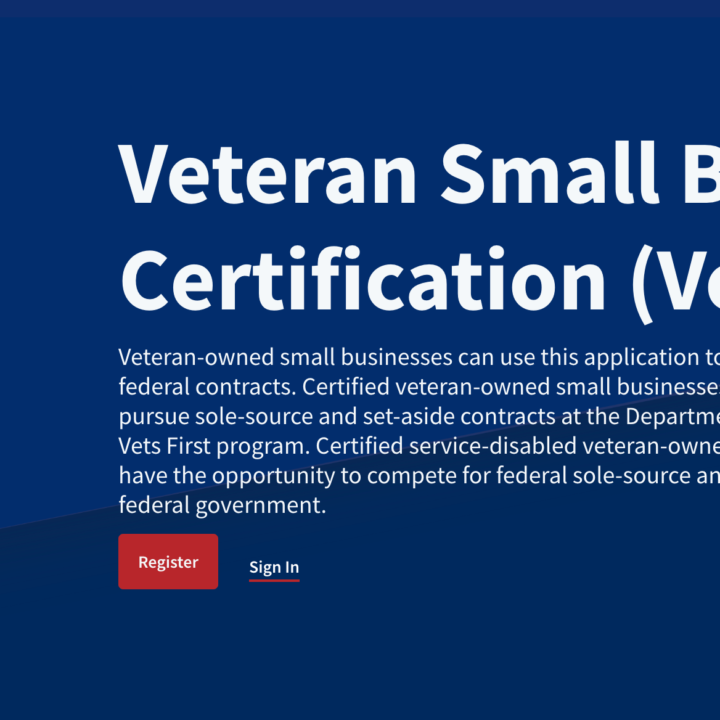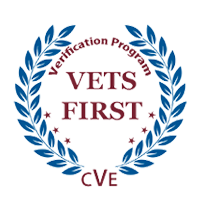A Roadmap for Success
Veteran-owned businesses represent a significant and rapidly growing segment of small business owners in the United States. There are approximately 2.5 million veteran-owned businesses in the U.S., generating over $1 trillion in receipts annually. With the right strategies and resources, veteran businesses can continue to find success and spur further growth in 2024.
Leverage Federal Contracting Programs
One of the biggest opportunities for growth comes from Federal contracting programs aimed at supporting service-disabled and veteran-owned small businesses. The goal of programs like VETS First, managed by the VA, is to award 3% of Federal contract dollars to service-disabled veteran owned small businesses each year. Similarly, the Veteran Owned Small Business (VOSB) set-aside program administered by the SBA aims to award at least 5% of Federal contracting dollars to veteran-owned small businesses each fiscal year.
Veteran businesses should make sure their business is first registered as a government contractor on the System for Award Management (www.sam.org) and then with the Small Business Administration’s Veteran Certification (www.veterans.certify.sba.gov). Work with a mentor or expert to navigate the government contracting process. Attend matchmaking and networking events to connect with government buyers. And ensure your business can fulfill contract requirements by ramping up capacity and training staff if needed.
Seek SBA Resources and Financing
The U.S. Small Business Administrationoffers a wide array of resources specifically for veteran-owned businesses. For example, SBA’s Boots to Business program provides entrepreneurship training for transitioning service-members. SBA also provides mentorship, counseling, and training programs through organizations like SCORE, Women’s Business Centers and Small Business Development Centers.
When it comes to financing, SBA offers loan guarantees and other financial assistance programs to help veteran-owned startups secure funding. Explore options like the SBA Express Loan and Community Advantage Loan Pilot which can provide quicker access to capital. SBA-backed microloans up to $50,000 can also help finance equipment, supplies and inventory.
Join the Veteran Owned Business Roundtable
An excellent way to gain insights and get connected is by joining the Veteran Owned Business Roundtable. This is a national nonprofit organization dedicated to advancing veteran entrepreneurship by providing networking, education, mentorship, and contracting opportunities. Participants gain access to business conferences, events, discounts and more.
Connecting with fellow veteran business owners provides an opportunity to exchange ideas and strategies for growth. Members can turn to each other for advice and partnership opportunities.
Focus on Digital Marketing and E-Commerce
One of the biggest business growth trends lies in digital marketing and e-commerce. With more consumers shopping online, veteran entrepreneurs should carve out a digital presence for their company. Leverage social media platforms like Facebook, LinkedIn, and Instagram to promote your brand, products or services.
Building out an e-commerce enabled website can help veteran owned businesses tap into new markets and revenue streams. Partner with vendors to sell goods online through Amazon, Etsy and other marketplaces. Use digital marketing strategies like paid search, email marketing and content creation to drive traffic and boost conversions.
Utilize Artificial Intelligence
Look for opportunities to utilize artificial intelligence (AI) to automate processes and gain insights. AI-powered software can handle repetitive administrative tasks, freeing up staff for higher value work. Chatbots can provide 24/7 customer service support. Recommendation algorithms can personalize the online shopping experience. Data analytics and predictive modeling can reveal trends and patterns to inform better decisions. AI is making major inroads into small businesses – don’t let your veteran-owned business be left behind.
Upgrade Technology and Cybersecurity
To gain operational efficiencies and lower costs, invest in technology upgrades like cloud computing, automated workflows, virtualization, and modern collaboration tools. But also pay close attention to cybersecurity threats which can cripple small businesses. Work with IT professionals to secure devices, accounts, networks, and critical data. Provide cybersecurity training to employees and institute backup procedures in case of ransomware or other attacks.
Develop Strategic Partnerships
Smart partnerships with larger corporations and other small businesses can provide veteran-owned companies with more resources and revenue opportunities. Partner with major defense contractors to become part of their supply chain. Collaborate with other veteran-owned firms to complement one another’s capabilities for teaming arrangements.
Develop corporate sponsorships with big brands that want to support veteran businesses. Participate in mentor-protege programs where large businesses provide training and guidance to smaller veteran-owned firms. The connections facilitated can be invaluable for gaining insights and driving new business.
Offer Employee Development and Wellness Programs
To recruit and retain top talent, veteran owned businesses should emphasize employee development, engagement, and wellness. Offer training programs to help employees learn new skills. Provide tuition assistance or reimbursement for continuing education. Implement regular one-on-one meetings and feedback sessions.
Also consider wellness benefits like mental health services, health insurance contributions and gym discounts. Support work-life balance through remote work options and flexible schedules when possible. Employees who feel invested in and supported will contribute more to the company’s growth.
Set Strategic Goals and Metrics
As veteran business owners map out their 2024 growth plan, specific goals and metrics should be established. Set targets for revenue growth, profitability, number of employees, market expansion and new product/service development. Track important KPIs on a monthly or quarterly basis to ensure progress.
Creating a formal strategic business plan with input from key team members can help identify opportunities and define action plans. Assess past performance and look for emerging trends that could impact future growth. A well-defined roadmap will provide focus and keep the business on course for success.
Conclusion
With proper planning, resource leveraging and a proactive approach, 2024 presents prime opportunities for veteran-owned businesses to advance. Following the strategies outlined in this article, veteran entrepreneurs can steadily expand their customer base, capabilities, technology use and expertise. While challenges always exist, the resilient leadership skills developed in military service prime veteran business owners to always push forward. By tapping into programs catering to veteran-owned business and maximizing SBA support, the future looks bright for growth.
To learn more about the Veteran Owned Business Roundtable and the resources it provides for veteran entrepreneurs, visit veteranroundtable.org.
Peter Vazquez
Executive Director
Veteran Owned Business Roundtable

















